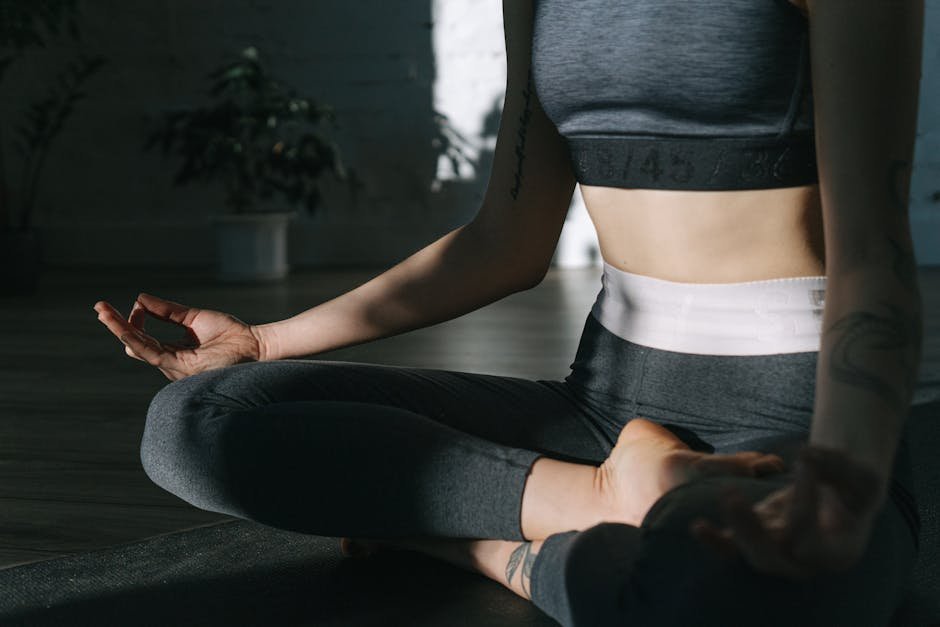Climbing Exercise: The Surprising Mental Health Benefits
What is Climbing Exercise?
Climbing exercise involves scaling various surfaces like walls or rocks using your hands and feet. It's a full-body workout that improves strength, endurance, and agility. Climbing can also boost your mental health by reducing stress and increasing focus and problem-solving skills. It's a fun activity that challenges both your body and mind.
Physical Benefits of Climbing Exercise
Climbing is a full-body workout that can improve your strength, flexibility, and balance. It engages your muscles in your arms, legs, and core, helping you build muscle and increase stamina. Climbing also enhances your cardiovascular health by raising your heart rate and improving blood circulation. Moreover, regularly engaging in climbing exercise can lead to weight loss as it burns a significant amount of calories.
Mental Benefits of Climbing Exercise
Climbing is not just a great workout for your body; it's also a fantastic exercise for your mind. When you climb, you challenge yourself to problem-solve and stay focused, which can help improve your mental agility. Studies have shown that climbing can reduce stress levels and boost overall mood by releasing endorphins, which are the "feel-good" hormones. The sense of accomplishment and confidence that comes from reaching the top of a climbing wall can also improve your self-esteem and mental well-being.
Climbing Exercise and Stress Relief
Climbing exercises can help reduce stress by triggering the release of endorphins, which are natural mood elevators. Additionally, the focus required for climbing can divert your mind from worries and promote a sense of calm. Climbing is a physical activity that allows you to challenge yourself and build confidence as you conquer various obstacles.
Boosting Self-confidence through Climbing
Climbing can help boost your self-confidence by challenging you to overcome obstacles and reach new heights. When you conquer a difficult route or reach the top of a climb you've been working on, it can give you a sense of achievement and pride. This feeling of accomplishment can improve your self-esteem and make you feel more confident in yourself. Climbing also allows you to set and achieve goals, which can further strengthen your belief in your abilities. It's a great way to push your limits and build your self-confidence in a fun and exciting way.
The Science behind Climbing and Mental Health
Climbing is not just a physical exercise; it also has significant mental health benefits. When you climb, your brain releases endorphins, which are chemicals that act as natural painkillers and improve your mood. This release of endorphins can help reduce stress and anxiety levels. Additionally, climbing requires focus and problem-solving skills, which can help improve your mental sharpness and cognitive abilities. Climbing also provides a sense of accomplishment and boosts your confidence, contributing to overall psychological well-being.
Getting Started with Climbing Exercise
When starting climbing exercise, it's important to begin with an experienced instructor who can show you the ropes, literally. Wear comfortable clothing and appropriate shoes for climbing to ensure a safe and enjoyable experience. Start with basic climbs to build strength and confidence before taking on more challenging routes. Remember to warm up before each session to prevent injuries and cool down afterward to aid recovery. Stay hydrated throughout your session to keep your energy levels up. Most importantly, have fun and enjoy the mental and physical benefits that climbing exercise can provide.
Safety Tips for Climbing
Always check your climbing gear before each climb. It's crucial to ensure everything is in good condition to avoid accidents. Wear a properly fitted helmet to protect your head from potential falls or rock debris. Make sure to double-check your harness and ensure it's securely fastened before climbing. Climb with a partner. Having someone there can provide assistance in case of emergencies. Stay hydrated during your climbs, as dehydration can affect your performance and safety. Observe proper climbing etiquette, respecting other climbers and the environment around you.
How to Incorporate Climbing into Your Fitness Routine
Climbing can be a challenging and fun way to stay active and boost your mental health. To incorporate climbing into your fitness routine, consider joining a local climbing gym or outdoor climbing group. Climbing walls are accessible in many cities and offer a safe environment to practice your skills. Start by scheduling regular climbing sessions into your weekly schedule to build strength and endurance. Invest in proper climbing shoes and harness for safety and comfort. Set achievable goals to track your progress and stay motivated. Don't forget to warm up before climbing and cool down afterward to prevent injuries.
Conclusion: Embracing the Mental Health Benefits of Climbing
If you're looking to boost your mental well-being, climbing exercises can be a great addition to your routine. Studies have shown that climbing can help reduce stress, improve mood, and increase focus. By incorporating climbing into your workout regimen, you can experience these mental health benefits while also enhancing your physical fitness. So, don't underestimate the power of climbing for your overall well-being.

